The most basic difference between Morton’s Kosher salt and Diamond Crystal kosher salt are their densities.
From my analysis, I found that:
- Morton’s is 2.09x more dense than Diamond Crystal
- Diamond crystal is more expensive (~2x more)
- Diamond crystal is only salt, where-as Morton’s uses an anti-caking agent
- Diamond crystal mixes better with other dry rub ingredients
- Diamond crystal sticks better to the surface of food
Actionable findings: If you only have Morton’s and your recipe calls for Diamond crystal, use half the amount of Morton’s.
Similarly, if you only have Diamond Crystal and the recipe calls for Morton’s, use double the amount of Diamond crystal.
The Density of These Salts
Most recipes on the internet will tell their readers to use Kosher salt – but they rarely tell you what brand.
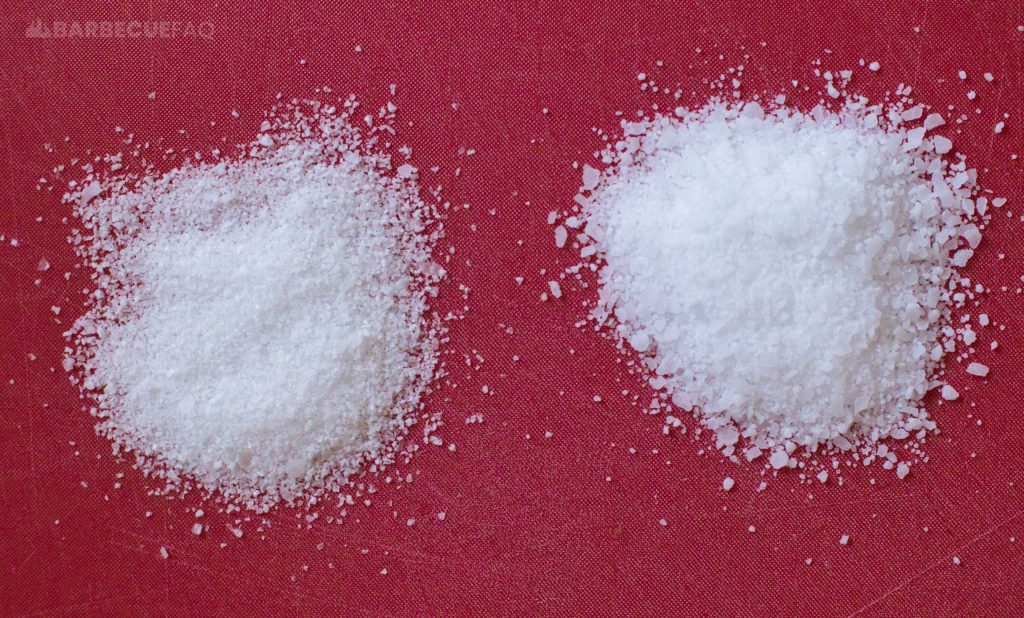
Since Diamond Crystal and Morton kosher salt are different densities, you could potentially be under or over-salting your dish.
Meaning you can’t substitute them 1:1.
To Prove the Difference in Densities
In order find these values, I used an electronic food scale that’s capable of accurate readings to 0.1g.
The scale I used was the Etekcity Food Kitchen Scale.
- I used a 1/4 cup measuring cup and overfilled the measuring cup with each salt. With a butter knife, I then leveled the surface of the measuring cup so that all the cracks and crevices were filled. I did not attempt to compact the salt granules and simply filled and leveled the surface.
- I then dumped the leveled 1/4 cup into a glass cup.
- I then cleaned the measuring cup and put it back on the scale and tared/zeroed it out.
- From there I then put the salt back into the measuring cup to give us our weight (in grams).
The reason I’m noting the above is because if you see an image with a rounded scoop below, it’s because I already leveled it before weighing it.
The Density of Morton’s Kosher Salt
The density of Morton’s Kosher salt is then 63.6g/59.16mL or 1.075g/mL.
(1/4 cup = ~59.16mL)

The Density of Diamond Crystal Kosher Salt
The density of Diamond Crystal Kosher salt is then 30.4g/59.16mL or 0.514g/mL.
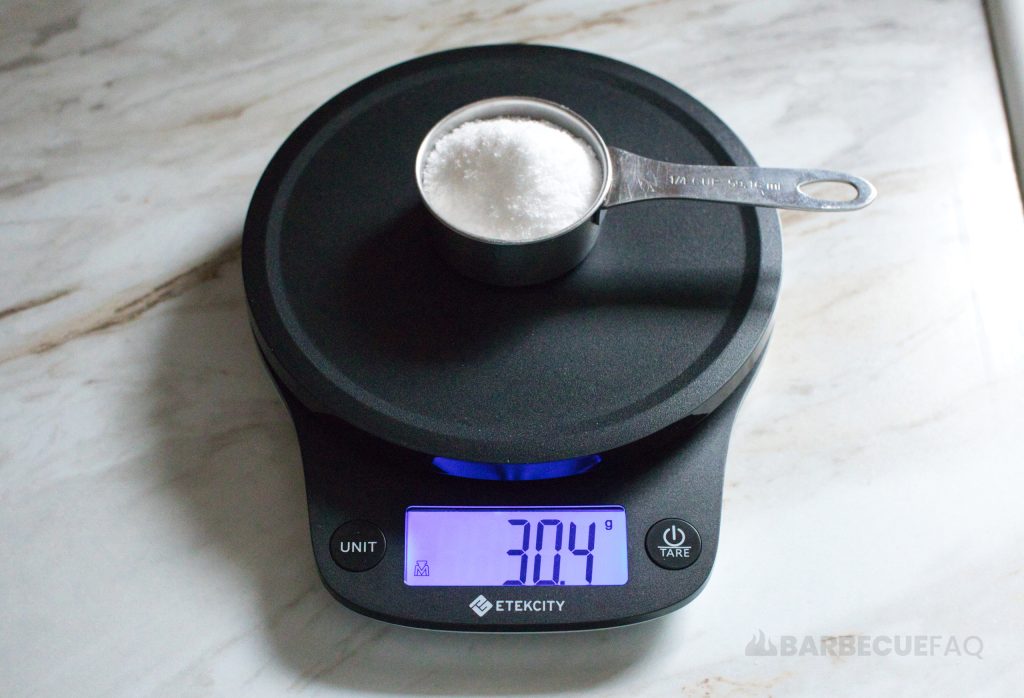
The Density of Morton’s Table Salt
The density of Morton’s table salt is then 71.4g/59.16mL or 1.21g/mL.
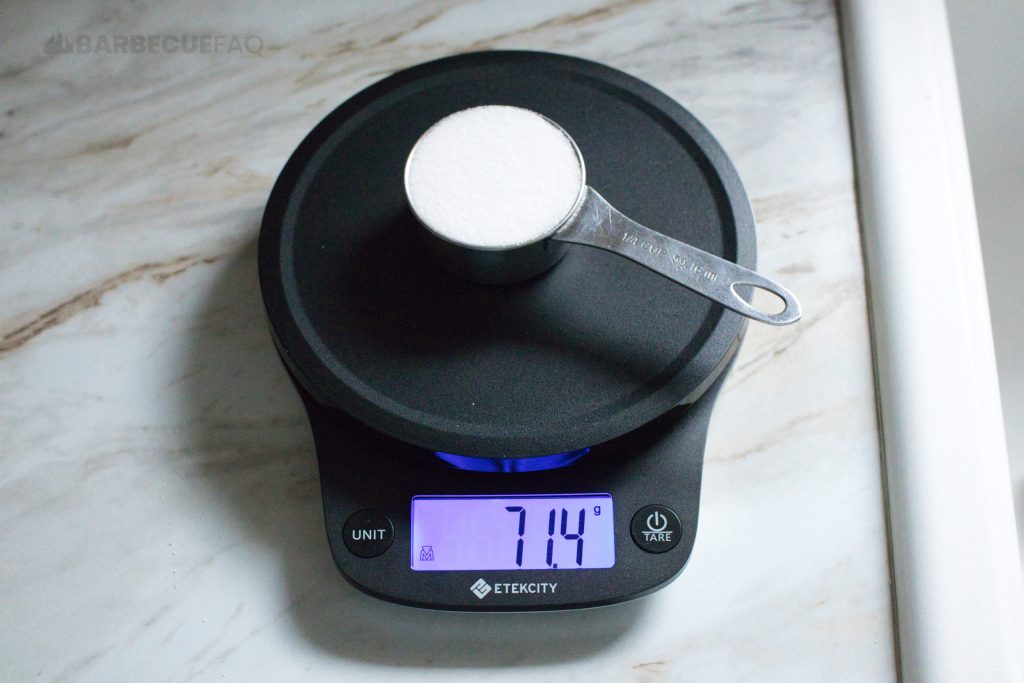
Actionable Data from These Findings
To summarize densities:
- Morton’s Kosher Salt: 1.075g/mL
- Morton’s Table Salt: 1.21g/mL
- Diamond Crystal Kosher Salt: 0.514g/mL
Morton’s to Diamond Crystal proportion ratio looks like this: 1.075/0.514 = 2.09x.
Here’s a table with common cooking measurements and the amount of Kosher salt (in Grams) that they contain.
| Measurement | Diamond Crystal Kosher Salt | Morton’s Kosher Salt |
|---|---|---|
| 1 Teaspoon (4.93 mL) | 2.53 g | 5.30 g |
| 1 Tablespoon (14.787 mL) | 7.60 g | 15.90 g |
| 1/4 Cup (59.15 mL) | 30.40 g | 63.59 g |
| 1/3 Cup (78.86 mL) | 40.53 g | 84.77 g |
| 1/2 Cup (118.29 mL) | 60.80 g | 127.16 g |
| 1 Cup (236.59 mL) | 121.61 g | 254.33 g |
These gram values for both kosher salts are obtained by multiplying the mL measurement in column 1 by the density of each type of kosher salt, stipulated above.
For instance, 1 teaspoon of Diamond Crystal would look like:
4.93 mL * 0.514g/mL = 2.53 g Diamond Crystal Kosher saltEssentially what we can glean from the table above and from our proportion factor is:
- If you’re using Morton’s Kosher Salt and the recipe uses Diamond Crystal, use roughly half the amount of Morton’s.
- If you’re using Diamond Crystal and the recipe uses Morton’s, use roughly double the amount of Diamond Crystal.
For all intents and purposes, most people aren’t using a food scale in their cooking. Rather, using either 2x or 1/2 the amount is a far more actionable conversion.
Some examples:
- 1 Tablespoon of Diamond Crystal would then be 1/2 Tablespoon of Morton’s
- 1 Cup of Morton’s would be 2 Cups of Diamond Crystal
- 1/2 Cup of Diamond Crystal would be 1/4 Cup of Morton’s
You get the gist.
Is There a Perceivable Taste Difference?
So as a home cook – in my humble opinion – no.
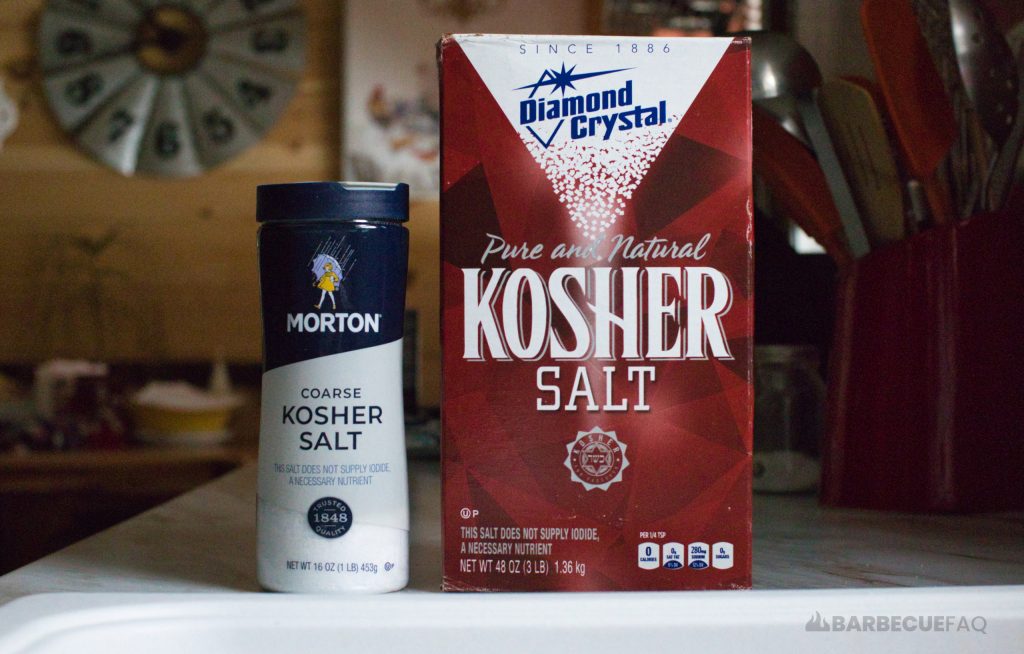
Some folks may say that Morton’s is slightly bitter, but not to the extent of iodized salt.
The anti-caking agent is a miniscule, regulated amount.
If you were to use either kosher salt and adjusted your quantities based on the densities of the salt, you likely wouldn’t taste a difference.
Again, it’s salt you’re tasting.
The “difference” in taste is a result of their density – Morton’s tastes saltier simply due to the fact that there’s more of it in a granule.
Technically, since Diamond crystal is less dense than Morton’s it’s considered more forgiving in the kitchen; Meaning, you’re less likely to over-salt a dish.
I’d wager to say most People prefer food that’s under-salted vs over-salted. Meaning, Diamond Crystal may be your preference too.
Creating Dry Rub Mixtures
There are instances where Diamond Crystal can be beneficial though and it mainly has to do with the shape of the salt.
Here’s a seasoned salt rub that contains 1/4 cup of diamond crystal:
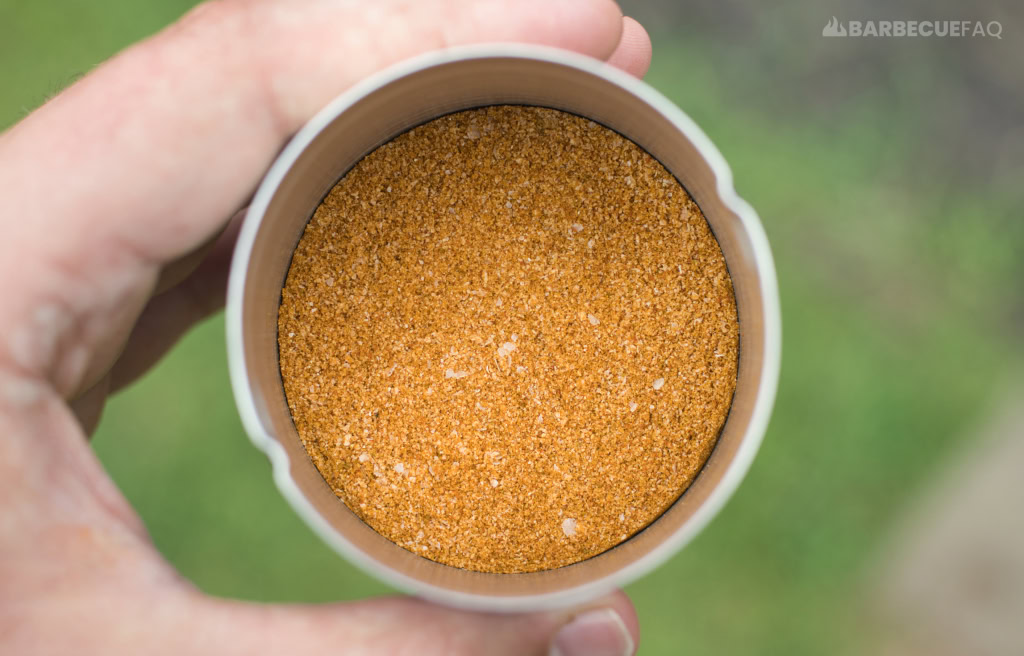
When creating dry rub mixtures, Morton’s tends to dissociate from other spices when blended, often separating itself requiring you to shake the bottle up frequently.
Here’s a Salt, Pepper, and Garlic (SPG) rub with Morton’s:
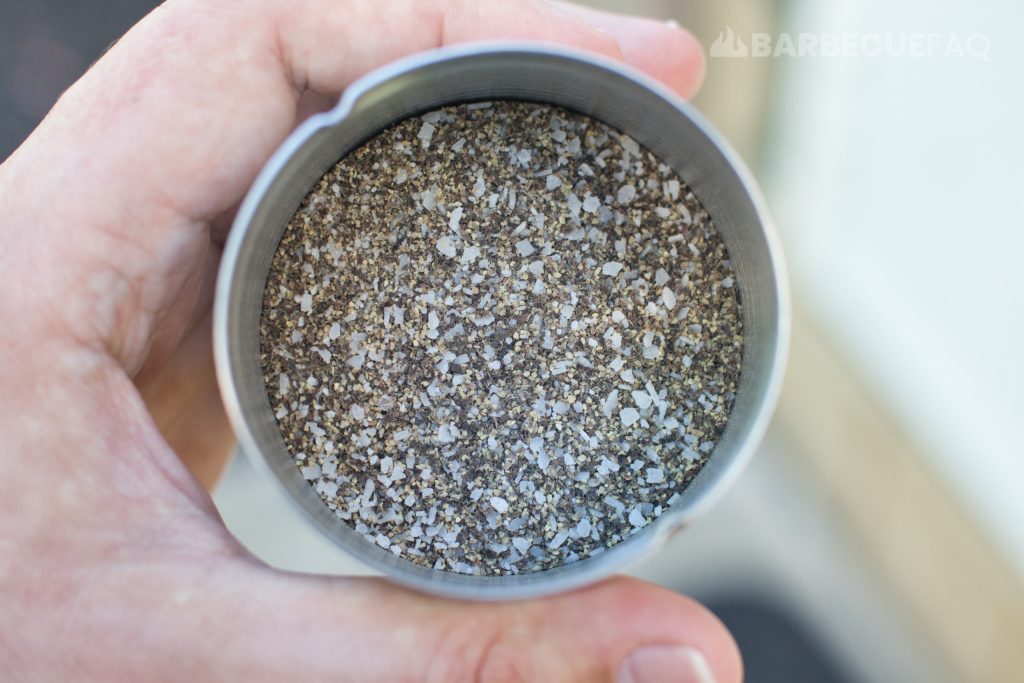
Typically when I season something like a brisket, I’ll apply my Morton Kosher salt first, then pepper, then garlic. The reason for this is due to the adhesion and dispersal of these seasonings.
Where-as with Diamond Crystal this is less of an issue since the jagged edges help to keep it suspended with other seasonings in a shaker bottle.
While the above are desirable qualities, it comes at a cost.
The Price Difference
Something almost no resources mention is cost. As someone who is a home cook, this factor is pretty important.
I recently re-bought some Diamond Crystal on 11/22/2024.
- Diamond Crystal Kosher Salt (3 lbs) – $12 (amazon)
- Morton’s Coarse Kosher Salt (3 lbs) – $3.67 (amazon)
So Diamond Crystal is ~3x more expensive than Morton’s.
Regardless of pricing, another common issue you’ll see is availability.
I know lots of people want to use Diamond Crystal but it’s more or less unavailable to them.
Where I live, I can never find it locally.
What About Table Salt?
This article sort of begs the question, what about just regular table salt; Can you simply use table salt in a recipe that calls for kosher salt?
No.
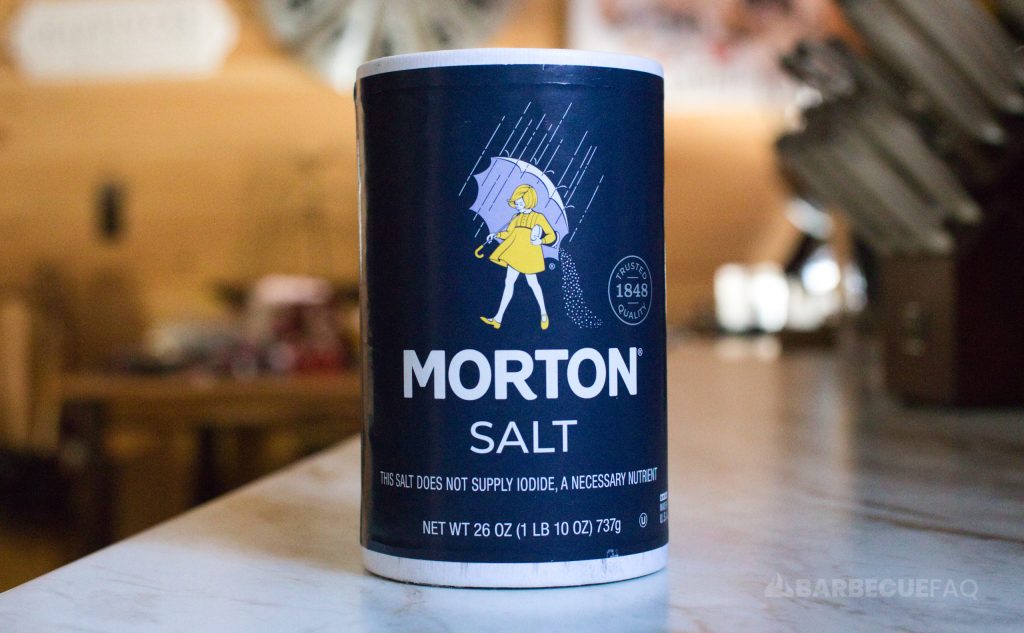
The best way I can describe the difference between kosher salt and regular table salt is:
- Kosher salt works to enhance the flavor of food where-as table salt just makes food taste salty.
The size of kosher salt works better on meat because it doesn’t dissolve as quickly since it has more surface area.
Since table salt is so fine, it’s also harder to control as it slips through the fingers. Since it’s more dense than Morton’s and Diamond Crystal, it’s also way less forgiving.
Table salt is also often iodized which can leave a bitter aftertaste.



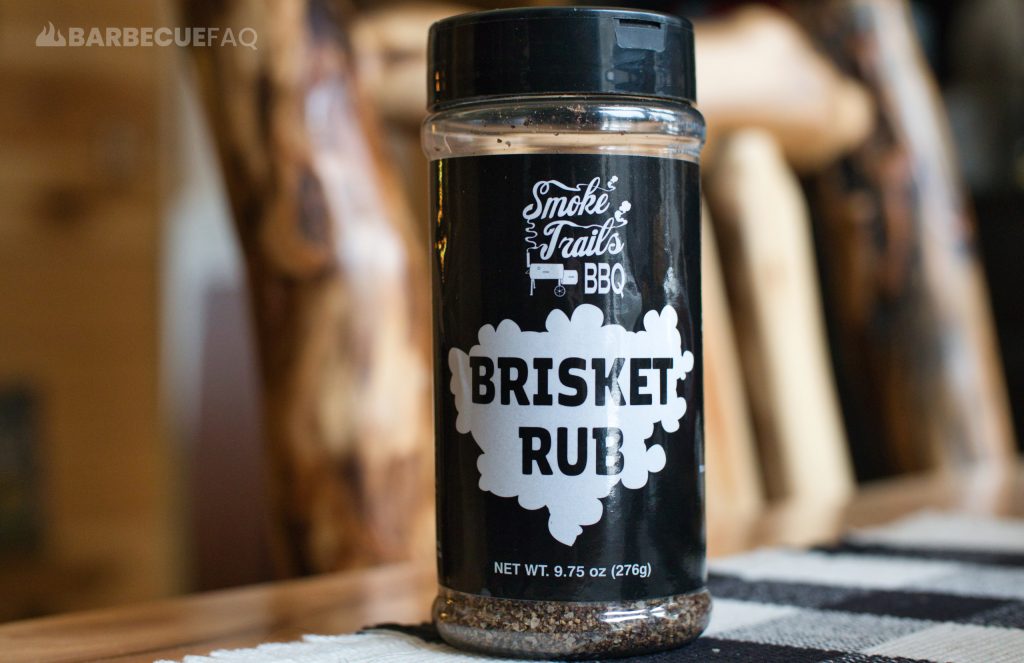
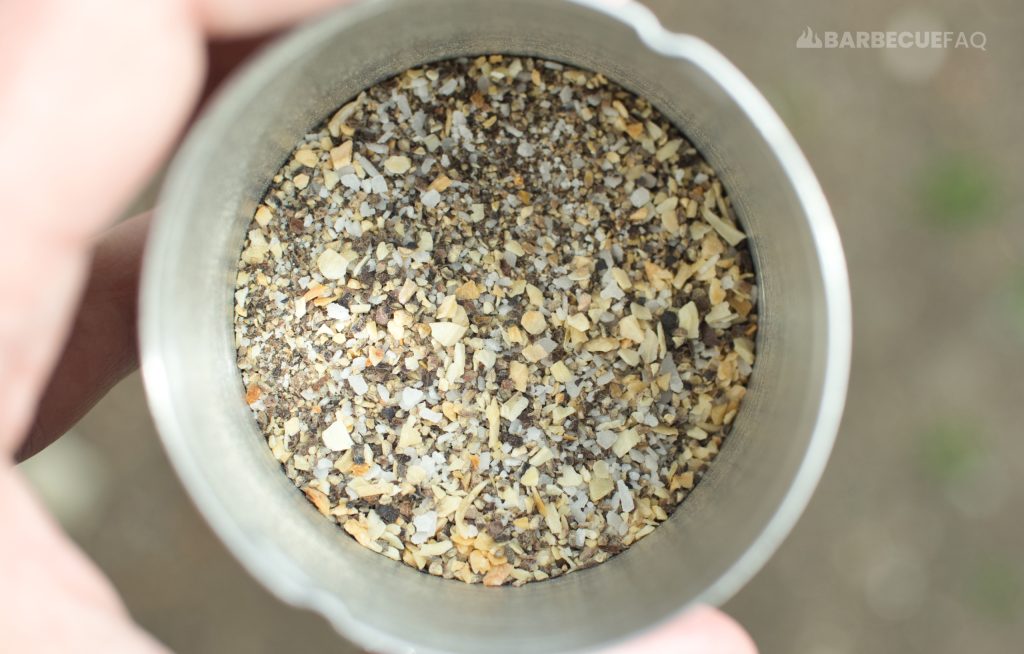
4 comments
George Topor
Great article. Thank you.
I did similar experiment with comparing the weights.
Small consolation, even though Diamond at $12.99 from Amazon , and recipes tend to ask for volume, not weight, one might say a three pound box of Diamond is equivalent to 2 three pound boxes of Morton’s.
Dylan Clay
Cheers for the comment George!
Amazon pricing changes often; The last box I bought was in January 2023, it cost me $16.26.
That’s true for most recipes in regards to volume vs weight, however, what if we’re talking about say equilibrium brining which often includes things like gram values of salt (that’s how I personally calculate salinity percentage for beef jerky).
Happybaker
Great article!
FYI, in Los Angeles, 2023, you can get Diamond Kosher salt at Vons/Alberstons – and it’s pricey. Over nine dollars for three pounds. But? You can also get it at Costco Business Centers for just over $5 for three pounds.
Dylan Clay
The above is good to know, thanks for the comment!
I’m actually on the opposite side of the country – I’m in NH – and no matter where I go it’s expensive. Your comment got me curious so I checked my grocery store (which says it’s “in stock” but I’ve never seen it), it’s $5.16 for 26 oz; Doing some proportion factors that’s still $9.63 for 3 lbs.
Also I wish I had a Costco where I’m at – the closet one is 90 minutes away.